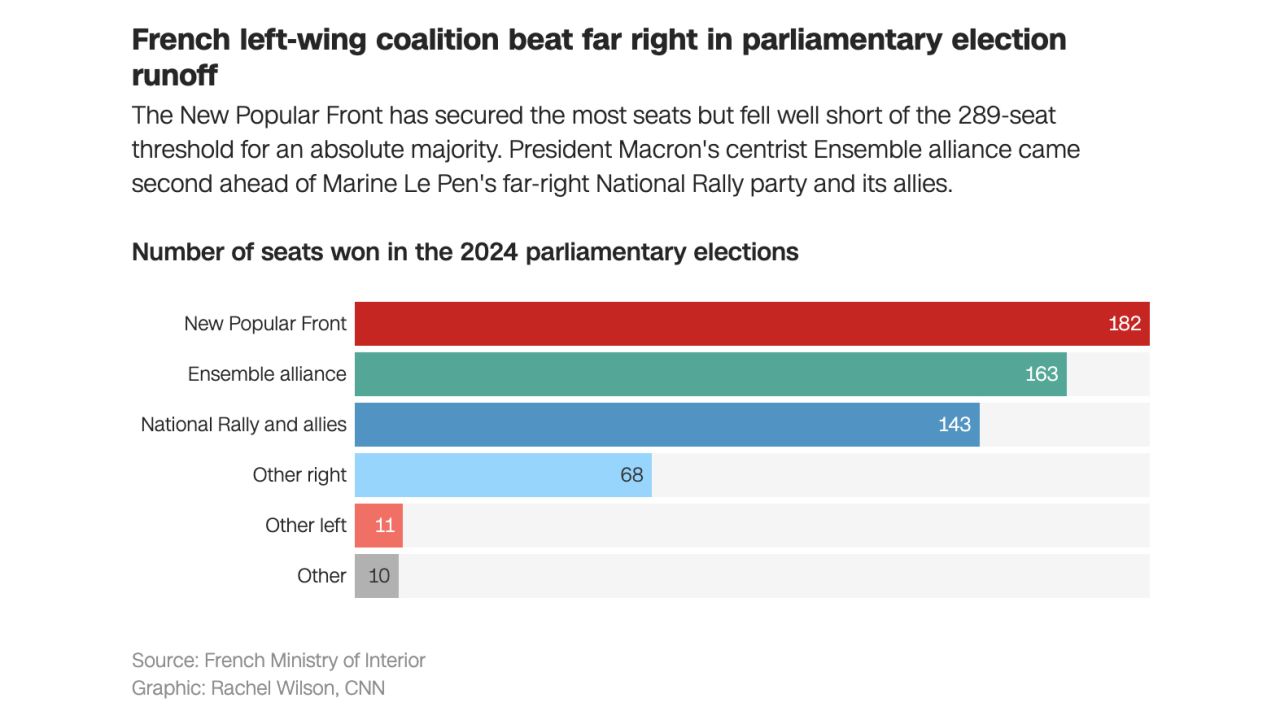Categoría: Política
Jennifer Aniston “no puede creer” la crítica de Vance a las mujeres sin hijos
Es realmente preocupante que un potencial Vicepresidente difunda estas ideas en sus votantes. Una pena.
La izquierda frena a la extrema derecha en las elecciones legislativas en Francia
Cómo Reino Unido cambió con el Brexit, el tema del que casi no se ha hablado en la campaña electoral
La estrategia de “desdemonización” y otras claves del avance de la extrema derecha en Francia
En: BBC News Mundo
Elecciones en Francia. ¿Por qué el mundo está pendiente?
Protestas en Israel contra la polémica reforma judicial del Gobierno de Netanyahu
Normas legales: oficializan ley que establece requisitos para nombrar ministros
El Congreso de la República promulgó la Ley Nº 31457, aprobada por insistencia en Pleno, que establece modificaciones a la Ley Orgánica del Poder Ejecutivo con el objetivo de establecer el procedimiento para nombrar ministros y viceministros.
Según la norma, publicada este viernes en el Boletín de Normas Legales del Diario Oficial El Peruano, el Ejecutivo deberá incluir como anexo la declaración jurada del nombrado en las resoluciones supremas de nombramientos de ministros. Dicho documento debe consignar con detalle que cumple con los requisitos para el cargo.
La ley establece también que en la declaración se incluya todas las investigaciones fiscales, los procesos judiciales y procedimientos administrativos en los cuales está o estuvo incurso en calidad de imputado o cómplice, el estado en que se encuentre dichos procesos y procedimientos, así como la decisión de las sentencias o resoluciones administrativas, si el proceso hubiera concluido.
La declaración jurada será puesta en conocimiento del presidente del Consejo de Ministros y del presidente de la República, de manera previa a la emisión de la respectiva resolución suprema de nombramiento.
Asimismo, el jefe del Gabinete Ministerial será responsable de verificar el contenido de la declaración jurada e informarlo al Parlamento en un plazo no mayor de cinco días hábiles luego de publicada la resolución de nombramiento.
Para el caso de viceministros se seguirá el mismo procedimiento establecido. No podrán ser nombrados como tal en la Presidencia del Consejo de Ministros (PCM), en el Ministerio de Defensa o en el Ministerio del Interior, quienes, conforme a la normativa vigente, se encuentren con acusación fiscal o estén siendo juzgados ante el Poder Judicial por delitos de terrorismo o tráfico ilícito de drogas.
Por otro lado, la ley refiere que el ministro que ocupe el cargo no debe contar con sentencia condenatoria en primera instancia, en calidad de autor o cómplice, por delito doloso ni estar inhabilitado para ejercer cargo público.
Atribuciones del Consejo de Ministros
La norma establece que, de ahora en adelante, el Consejo de Ministros tendrá como atribución plantear ante el Congreso de la República la cuestión de confianza a que se refiere el artículo 133 de la Constitución Política del Perú.
Asimismo, el titular de la PCM tendrá como nueva función exponer ante el Legislativo la política general de gobierno y las principales medidas que requiere su gestión, con arreglo al artículo 130 de la Constitución Política del Perú, informando el estado de situación general del país y las metas que se propone para cada sector.
Las declaraciones juradas de los ministros y viceministros en ejercicio deberán ser publicadas en un plazo no mayor a cinco días hábiles después de publicada la referida ley, las cuales son verificadas conforme a lo dispuesto por la presente norma.
(FIN) GDS/CVC
En: andina.pe
El injusto despido a Sonaly Tuesta
Video: La República – LR+
Public Shaming: Last Week Tonight with John Oliver
Video: LastWeekTonight

